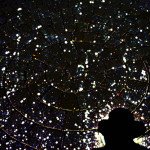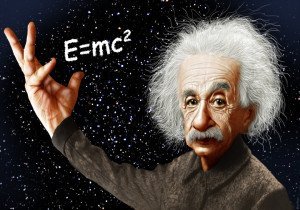 It’s said that science is a religion. This notion can confuse those who don’t understand it. In fact, many scientists hate the idea of “scientific religion” because they feel it completely mischaracterizes science. After all, they hold science to be an impartial methodology with a single goal, to uncover the causes of what we observe. Don’t they? At least that’s the claim; science consists of dispassionate objectivity. They hold that science is not faith; it is a cold process rooted purely in facts. They claim that if science were a religion, it would be a religion without faith.
It’s said that science is a religion. This notion can confuse those who don’t understand it. In fact, many scientists hate the idea of “scientific religion” because they feel it completely mischaracterizes science. After all, they hold science to be an impartial methodology with a single goal, to uncover the causes of what we observe. Don’t they? At least that’s the claim; science consists of dispassionate objectivity. They hold that science is not faith; it is a cold process rooted purely in facts. They claim that if science were a religion, it would be a religion without faith.
If science has a faith, it is a religion, if not, then those who claim the existence of scientific religion are wrong—probably because they dislike science, or want to ensure that science is not elevated to a standard which eclipses all other notions as speculation or wishful thinking. So which is it?
Is Scientific Religion Real?
Scientific religion exists, and it has never been as obvious as it is now–after the Big Bang discovery. The Big Bang was exactly what Christians expected science to uncover, as it fits perfectly with Genesis. But science was beside itself after the discovery, and many scientists still are. The reaction by scientists was not limited to awe and wonder. Many rejected the evidence, some cheated to cover it up, and the scientific community was passionately frustrated.
Robert Jaystraw, the famous astronomer, physicist, and cosmologist wrote:
“There is a strange ring of feeling and emotion in these reactions [of scientists to evidence that the universe had a sudden beginning]. They come from the heart whereas you would expect the judgments to come from the brain. Why? I think part of the answer is that scientists cannot bear the thought of a natural phenomenon which cannot be explained, even with unlimited time and money. There is a kind of religion in science; it is the religion of a person who believes there is order and harmony in the Universe. Every event can be explained in a rational way as the product of some previous event; every effect must have its cause, there is no First Cause. … This religious faith of the scientist is violated by the discovery that the world had a beginning under conditions in which the known laws of physics are not valid, and as a product of forces or circumstances we cannot discover. When that happens, the scientist has lost control. If he really examined the implications, he would be traumatized.”
 Albert Einstein, regarded as one of the two pillars of modern physics, was so upset when evidence for the Big Bang was advanced that he tried to negate it (hide it), even though his own Theory of Relativity proved it to be true. He wrote in a letter, “This circumstance irritates me.” In another letter, he wrote, “To admit such possibilities seems senseless.” In response, Einstein created a new factor called the “cosmological constant” in an effort to prove a static universe. Without the cosmological constant, something like the event in Genesis was undeniable. He did not want to accept it—but how can I say he tried to cover it up? That’s a big claim, isn’t it? Maybe, except that both of these are true statements.
Albert Einstein, regarded as one of the two pillars of modern physics, was so upset when evidence for the Big Bang was advanced that he tried to negate it (hide it), even though his own Theory of Relativity proved it to be true. He wrote in a letter, “This circumstance irritates me.” In another letter, he wrote, “To admit such possibilities seems senseless.” In response, Einstein created a new factor called the “cosmological constant” in an effort to prove a static universe. Without the cosmological constant, something like the event in Genesis was undeniable. He did not want to accept it—but how can I say he tried to cover it up? That’s a big claim, isn’t it? Maybe, except that both of these are true statements.
- Einstein was irritated about the discovery of the Big Bang.
- The “Cosmological Constant” Einstein invented, and published, in an effort to defeat the Big Bang evidence, was constructed by dividing by zero in his calculations, something every schoolchild knows cannot be done—it’s cheating.
If you believe Einstein did not try to cover up the Big Bang evidence, then you also have to believe that Einstein was not smart enough to know that dividing by zero is cheating. Scientific religion at its best.
Jaystraw had more to say about this scientific frustration:
“Theologians generally are delighted with the proof that the universe had a beginning, but astronomers are curiously upset. It turns out that the scientist behaves the way the rest of us do when our beliefs are in conflict with the evidence.” (Robert Jastrow, God and the Astronomers, 1978, p. 16.)
“For the scientist who has lived by his faith in the power of reason, the story ends like a bad dream. He has scaled the mountains of ignorance; he is about to conquer the highest peak; as he pulls himself over the final rock, he is greeted by a band of theologians who have been sitting there for centuries.” (God and the Astronomers, p. 116.)
The evidence of scientific religion (faith) is nearly inexhaustible. This has been going on for centuries. Scientists don’t like certain claims. They get mad. Why? If “science” were not a belief system, then why would any scientist, especially a “pillar of science,” become angry, frustrated, or irritated? Isn’t science supposed to lead us to the facts? Isn’t it simply a dispassionate methodology? No, it’s not.
Moreover, there are scores people making all kinds of completely unjustified and nonsensical claims in the name of science–claims transparently based purely on faith. Steven Hawking, a popular physicist, invents all kinds of notions that have nothing to do with science, all in an effort to defeat scientific claims that tend to support theologians. When he does, other parishioners of scientific religion are there, like eager sponges of faith, willing to applaud his insight and brilliance. It doesn’t matter that the stories Hawking invents are not science. They are akin to ropes cast from a raft in a storm, gathering together the hopeless.
Among Hawking’s claims are inventions of imaginary time, space called non-space, and of course, when all else fails, parallel universes and other fantastical imaginings that distract the willing audience in what amounts to a magic show–magical thinking to deny scientific facts that conflict with scientific religion. That sounds an awful lot like what scientists claim believers in God do.
 Still others who practice scientific religion cling to an unwavering belief that everything will be explained by science. For parishioners of science, this belief is not tempered by logic. They make leaps of unscientific judgement to conclude that science will eventually derive answers for everything, and that such answers will dispel all notions of God. So profound are the fallacies of reasoning in this belief, that it hardly seems possible that anyone, especially people of “science,” could embrace these hopeful predictions as worthy of faith. But they do, and those who claim they are scientists, but embrace the notion of God, are discounted by the majority of the scientific parishioners.
Still others who practice scientific religion cling to an unwavering belief that everything will be explained by science. For parishioners of science, this belief is not tempered by logic. They make leaps of unscientific judgement to conclude that science will eventually derive answers for everything, and that such answers will dispel all notions of God. So profound are the fallacies of reasoning in this belief, that it hardly seems possible that anyone, especially people of “science,” could embrace these hopeful predictions as worthy of faith. But they do, and those who claim they are scientists, but embrace the notion of God, are discounted by the majority of the scientific parishioners.
The faithful proceed in their “dispassionate science” by including the presupposition that God does not exist, while simultaneously decrying that they are searching for truth. Is that truth seeking? No, but they have little interest in actual truth, only the kind of truth that leads them where they want to go. Their religion is a passionate one, and to protect their religion, they must first destroy all other religions. It is their first principle.
In essence, they hope and believe, against logic, that science will replace God with scientific answers for all creation. This faith in science is indistinguishable from worship. They cling to their faith, make assumptions about the universe, and hold firmly to what amounts to little more than hopeful prediction—and if there is any tell-tale sign of religion (claims the scientist), it is when logic gives way to faith and hope.
Science meets all the criteria for scientific religion. In general, scientific religion is not the cold dispassionate journey to seek the truth. It’s not merely methodological, nor rooted firmly in evidence. It goes beyond these notions into passion and faith. There can be no genuine doubt, despite how badly objectors want science to be viewed otherwise, that scientific religion exists—and those who follow the faith of science are transparently religious.
